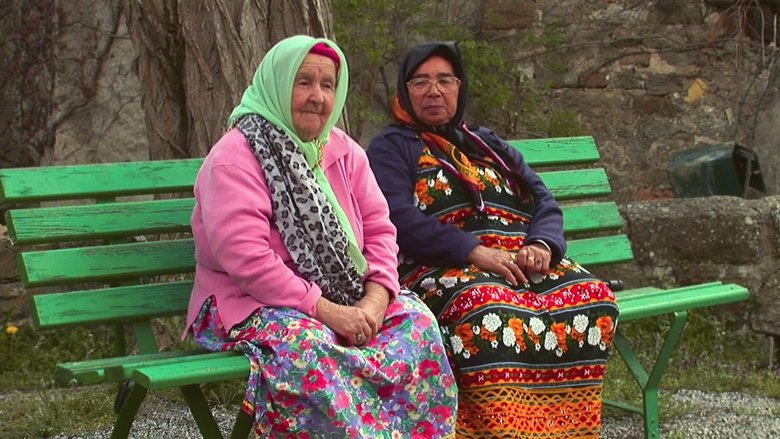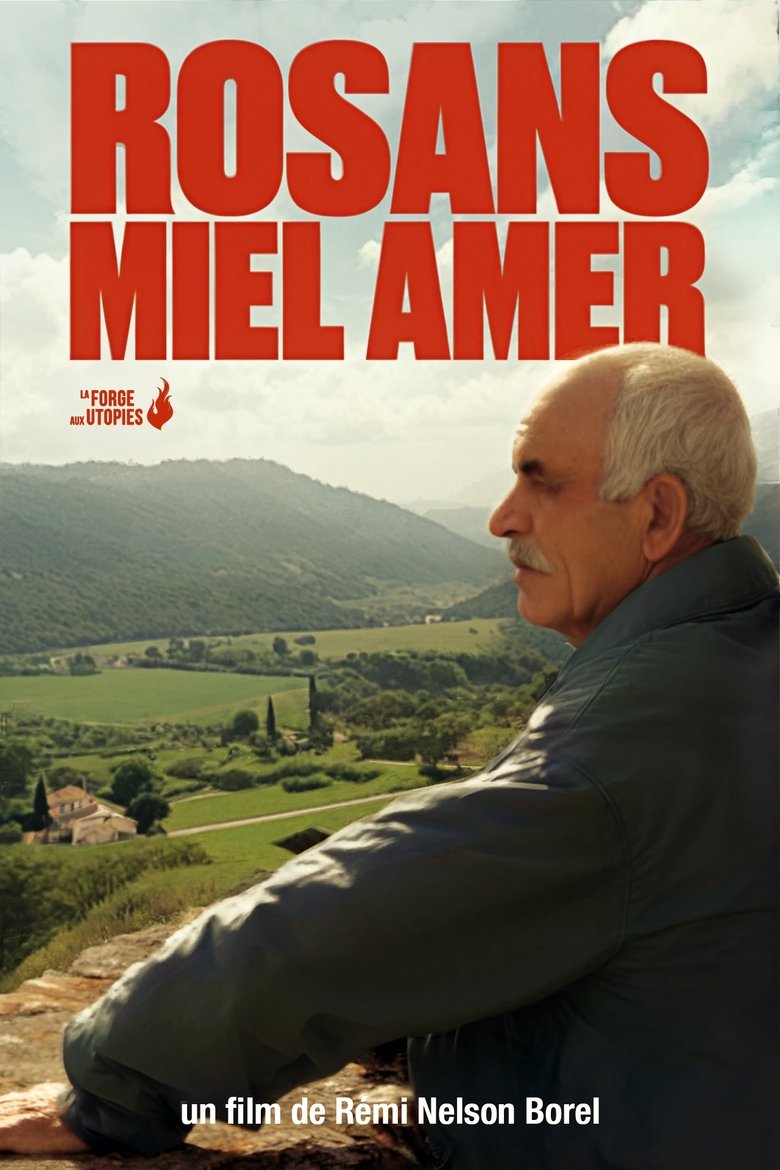Loading


Rosans, Bitter Honey
Genres
DocumentaryHistory
Overview
In 1963, Rosans, a village in the Hautes-Alpes region depopulated by the rural exodus, welcomed Harkis (military soldiers) forced to leave Algeria for supporting France during the Algerian War. Around thirty families settled in a camp below Rosans. Nearly half a century after their arrival, first- and second-generation Harkis and native Rosanais recount their experiences of this culture clash, often painful, sometimes happy. Language barriers, religious differences, living in barracks for 14 years, and unemployment were all obstacles to overcome in order to be accepted and then achieve mutual enrichment. Enriched with archive footage to explain the historical context of the time, the film seeks above all to express feelings and unspoken words.
Details
Budget
$0
Revenue
$0
Runtime
60 min
Release Date
2011-01-01
Status
Released
Original Language
French
Vote Count
1
Vote Average
10
Cast
Meet the talented actors who bring the movie to life.
Similar Movies
Explore movies similar to this one that you might also enjoy.
10.0
René Vautier, le maquisard à la caméra
2000-01-01 | fr
0.0
Remembering Port Chicago
In California's Bay Area, a painful memory lingers of the Port Chicago disaster of WWII, when hundreds of the Navy's first Black Sailors perished, and the White officers in charge were protected by the chain of command.
2017-09-01 | en
10.0
Kamel Hamadi, Ger Yenzizen
Portrait of the Algerian singer and composer Kamal Hamadi (husband of the singer Noura). Performer, musician, conductor, lyricist, author and composer, he is considered today as the witness par excellence of Algerian artistic action of the 20th century. The film received the Golden Olivier for best documentary 2010 at the Tizi-Ouzou Amazigh Film Festival in Algeria.
2010-01-01 | ar
10.0
Li Fet Met (Le passé est mort)
The SAS (Section Administrative Spécialisée) were created in 1956 by the French army during the Algerian war to pacify "the natives". During the day, the SAS were used as treatment centres and at night as torture centres, in order to crush the Algerian resistance. The SAS were inhabited by French soldiers and auxiliaries (harkis, goumiers) and their families. At independence in 1962, a few families of auxiliaries stayed on; the vacant buildings were occupied by families of martyrs awaiting the better days promised by the new Algeria. 46 years later, the SAS at Laperrine, in the Bouira region, still exists, a unique place inhabited by people who have taken refuge there. They have been joined by farmers fleeing the terrorism of the 90s. They all live as best they can in a place they did not choose, suffering the consequences of war.
2007-01-01 | fr
6.2
Stranger at the Gate
A U.S. Marine plots a terrorist attack on a small-town American mosque, but his plan takes an unexpected turn when he comes face to face with the people he sets out to kill.
2022-02-23 | en
6.0
The Panafrican Festival in Algiers
Festival panafricain d'Alger is a documentary by William Klein of the music and dance festival held 40 years ago in the streets and in venues all across Algiers. Klein follows the preparations, the rehearsals, the concerts… He blends images of interviews made to writers and advocates of the freedom movements with stock images, thus allowing him to touch on such matters as colonialism, neocolonialism, colonial exploitation, the struggles and battles of the revolutionary movements for Independence.
1969-01-01 | ar
0.0
A Minha Avó Trelotótó
«My grandma had a great strength and love for life which made me believe that some of us were able to become immortals and escape death. When she passed at the age of 92, her death was a surprise to me, which I was not prepared for. The cinema has the immense power of creating the illusion of life and its protection. This film is my attempt to rescue my grandma from death. It is not a documentary about my grandma but a film with my grandma. I wanted to film a ghost and then return it to the realm of the living, like Orfeu tried with Eurídice. It is a route to resurrection. It is my way of giving her immortality which I deem to be her right.»
2019-05-06 | pt
0.0
The Kasims
Eighteen-year-old Shahnura is about to graduate from high school. Her mother spends hours at the dining table while Shahnura is at school, wondering if her mother, sister, and brother are still alive. Living in Germany without a passport or nationality, she listens to the harrowing stories of her mother and two friends who have experienced imprisonment and re-education camps in China. These accounts reveal the suffering, human rights abuses, forced adoptions, and the grim reality of the camps where the predominantly Muslim Turkic Uyghurs are tortured and mistreated.
| de
0.0
Sin libertad: 20 años después
2022-10-26 | es
0.0
A Day at the End of 25 Years
An experimental short film shot on Soviet Sveta 8mm film stock expired in 1984. It documents the 25th birthday of the filmmaker.
2020-03-01 | en
10.0
L'Homme de L'Atlas
1973-01-02 | fr
0.0
El pisto
2022-04-07 | es
10.0
Séfar, A City of Mysteries
Séfar (in Arabic: سيفار) is an ancient city in the heart of the Tassili n'Ajjer mountain range in Algeria, more than 2,400 km south of Algiers and very close to the Libyan border. Séfar is the largest troglodyte city in the world, with several thousand fossilized houses. Very few travelers go there given its geographical remoteness and especially because of the difficulties of access to the site. The site is full of several paintings, some of which date back more than 12,000 years, mostly depicting animals and scenes of hunting or daily life which testify that this hostile place has not always been an inhabited desert. Local superstition suggests that the site is inhabited by djins, no doubt in connection with the strange paintings found on the site.
2021-11-20 | fr
0.0
Algérie 1962: Chronique d'un conflit
1962-01-01 | fr
7.5
Algérie du possible
By meeting his former comrades in combat, the film follows the journey of Yves Mathieu, anti-colonialist in Black Africa then lawyer for the FLN. When Algeria became independent, he drafted the Decrees of March on vacant property and self-management, promulgated in 1963 by Ahmed Ben Bella. Yves Mathieu's life is punctuated by his commitments in an Algeria that was then called "The Lighthouse of the Third World". The director, who is his daughter, returns to the conditions of his death in 1966.
2016-12-07 | fr
10.0
Noua
Directed by Abdelaziz Tolbi.
1972-01-02 | ar
7.9
The Battle of Algiers
Tracing the struggle of the Algerian Front de Liberation Nationale to gain freedom from French colonial rule as seen through the eyes of Ali from his start as a petty thief to his rise to prominence in the organisation and capture by the French in 1957. The film traces the rebels' struggle and the increasingly extreme measures taken by the French government to quell the revolt.
1966-09-08 | it
10.0
Hier, aujourd'hui et demain
2010-11-14 | ar
0.0
Their Houses
Filmmaker Cam Archer examines and explores his ordinary, suburban neighborhood in search of hidden truths, new narratives and a better understanding of his fading, creative self. Combining heavily degraded video with personal photographs and real life neighbors, Archer re-imagines the concept of 'home video'. In an attempt to distance himself from his subjects, actress Jena Malone narrates the piece as Archer in the first person.
2011-12-01 | en
0.0
Negotiating Amnesia
Negotiating Amnesia is an essay film based on research conducted at the Alinari Archive and the National Library in Florence. It focuses on the Ethiopian War of 1935-36 and the legacy of the fascist, imperial drive in Italy. Through interviews, archival images and the analysis of high-school textbooks employed in Italy since 1946, the film shifts through different historical and personal anecdotes, modes and technologies of representation.
2015-11-27 | en